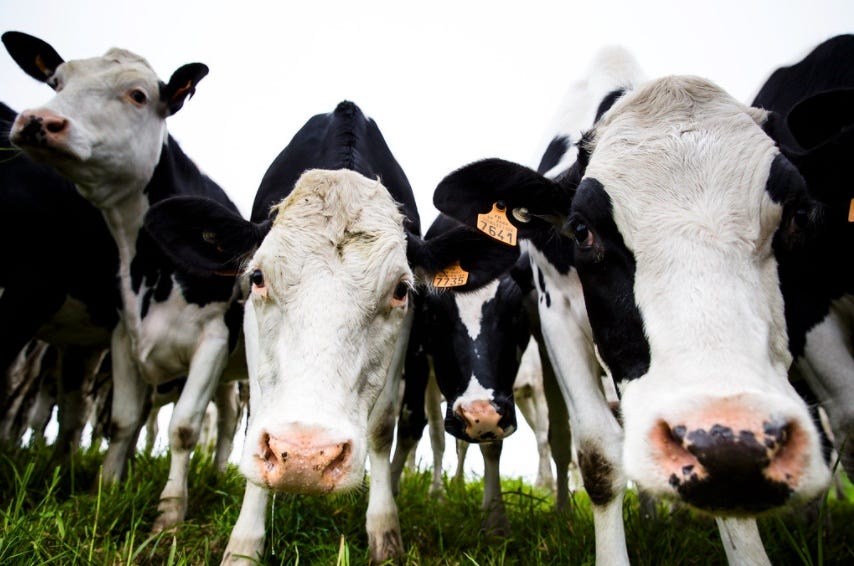Can farmers be bribed to suppress their cows' gas?
A dairy cooperative is betting that higher milk prices can reduce methane emissions.
(A native of England, Matthew Diebel is a veteran journalist who has worked at NBC News, Time, USA Today and News Corp., among other organizations. Having spent his childhood next to one of the world's fastest bodies of water, he is particularly interested in tidal energy.)
When it comes to fighting global warming, you have to hand it to the Danes. By a long way, they are the world’s top wind power company per capita while one of their companies, Vestas (VWDRY), is the leading wind turbine company in the world.
And now they are aiming to suppress farts and belching from cows.
We jest (somewhat), but emissions from livestock are a huge environmental issue, with cattle producing about 40% of the world’s methane as they expel about 220 pounds of the noxious gas each year, according to researchers at the University of California at Davis.
Which is where the daring Danes come in: a giant dairy cooperative based in the nation’s second-largest city, Aarhus, has declared it will pay farmers more for milk from cows that produce lower methane emissions.
The stakes are large. The company, Arla Foods, is the dominant dairy supplier in Scandinavia and the U.K., with brands such as Lurpak and Anchor featured heavily on supermarket shelves.
So, how is the whole thing going to work? CEO Peder Tuborgh explained the financial aspect in an interview with Bloomberg: “The more activities you do that reduce the climate impact, the better the milk price you get from us,” he said. “We know it will make a huge difference to the farmers if they are financially motivated to do the right thing.”
The move will build on an already-existing program where the roughly 9,000 producers in Arla’s network get one extra euro cent per liter of milk in exchange for allowing annual checks of their climate-related practices. In the wake of the introduction of the program in 2015, Tuborgh added, the competition engendered has spurred farmers to adopt practices, such as manure management, that reduce carbon-dioxide emissions to the point where Arla’s producers emit about half the amount of CO2-equivalent per kilogram of milk than the global average.
The key ingredient is the cows’ food, where seaweed shows great promise. As we reported in February, researchers at the UC Davis last year published a paper in which they demonstrated that only three ounces of seaweed in a cow’s daily diet reduced their methane output by 82% without affecting their weight or milk output.
And in Sweden, a startup called Volta Greentech is to build a factory to make seaweed supplements that will reduce methane emissions from cows by about the same amount. The company’s supplement, co-founder Fredrik Akerman told Bloomberg, is based on the red seaweed Asparagopsis Taxiformis, which helps block one of the enzymes needed by methane-producing bacteria in cows’ digestive systems.
We have visions of Arla’s farmers flocking to the seashore.

